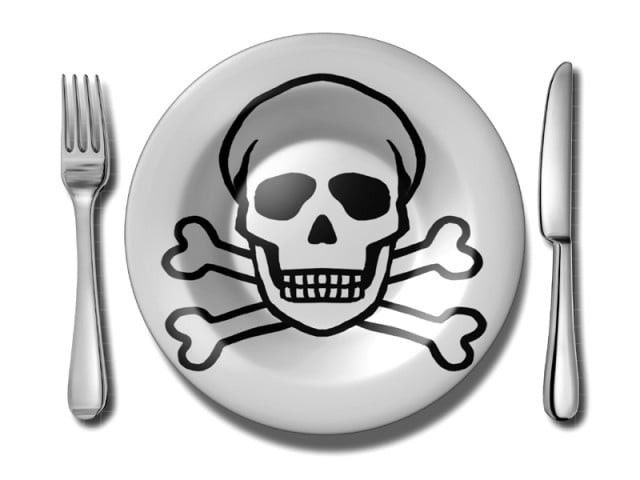Contaminated food: Food authority set to crack down on milk suppliers
Pasteurised milk companies remove cream, put in industrial fats imported for soaps.

The Punjab Food Authority (PFA) is all set to launch a crackdown on milk suppliers selling contaminated milk in the city, The Express Tribune has learnt.
Till September 24, PFA officials had visited 7,162 factories, shops, hotels and restaurants and served notices on 576 outlets and imposed over Rs3,003,000 fine.
This week, the PFA food safety officer will set up three entrances to the city check milk being transported on vans and bikes. The milk found contaminated will be thrown away.
PFA officials told The Express Tribune they were not sparing anybody selling food that did not meet safety standards. They said restaurants on the MM Alam road had been fined for not maintaining hygiene. The PFA will issue also licences to food vendors and advertise for that. The licences will be valid till December. The officials said the licence fee was Rs1,000 for stores, Rs5000 for hotels and Rs50,000 for factories.
They said the PFA was lobbying to get the administrative control of the CDGL food laboratory. The lab would start testing the 400 samples collected by the PFA within seven days.
PFA Director General Asad Mahani said he hoped that the lab issue would be settled soon. He said hiring a highly-educated staff had yielded good results and he was optimistic that food safety conditions would improve in the city in the coming days.
He said the authority was working on a GIS (geographical information system) and an MIS (management information system) to put information on city eateries and factories online. He said the PFA had also drafted new food safety rules which would be sent to the Law Department in two months for vetting. The PFA would focus on food supply chains and hence zero for unsafe food. He said disclosing the exact date for launch of a crackdown on contaminated milk would jeopardise the entire campaign.
Consumer Forum
Mohsin Bhatti, the Consumer Forum vice president, disagreed with the plan. He said under the rules, a food safety officer could only check milk fats using a gravity meter. The fats would generally turn out adequate. The meter would not tell what kind of fats those were. He said most of the milk whether pasteurized or not was not up to the standard. He said a frequent contamination was caused by cows or buffalos being injected with oxytocine. He said the drug was passed in milk and affected eyes and kidneys. He said milk quality in as little as two hours at outdoors temperature. Carried in steel cabin vans for hours in absence of any refrigeration, it maintained its look owing to farmoline drops which killed all bacteria. He said several companies dealing in pasteurised milk removed cream and put in industrial fats imported for use in soaps. Later, urea was added to mask these. Caustic soda, hair-removing powder and bleaching agents were added to whiten the milk.
Dairies
He said many dairies prepared their milk from milk powder. A litre of cooking oil, 2kg dry milk and 37 litre water were mixed to produce 40 litres milk.
Milk man
He said most milk men sold milk only after extracting cream from it for which machines were installed near Raiwind, Kahna, Multan Road, Sheikhupura and Kasur. He said the milk men offered milk at various prices because the fraction of cream varied. He said none of violations could be detected by the gravity meter inspections. Even the CDGL lab couldn’t help, he said. When contacted, CDGL Laboratory Public Analyst Shahid Mahmood said the CDGL laboratory could detect all wrongs.
Published in The Express Tribune, September 26th, 2012.



















COMMENTS
Comments are moderated and generally will be posted if they are on-topic and not abusive.
For more information, please see our Comments FAQ